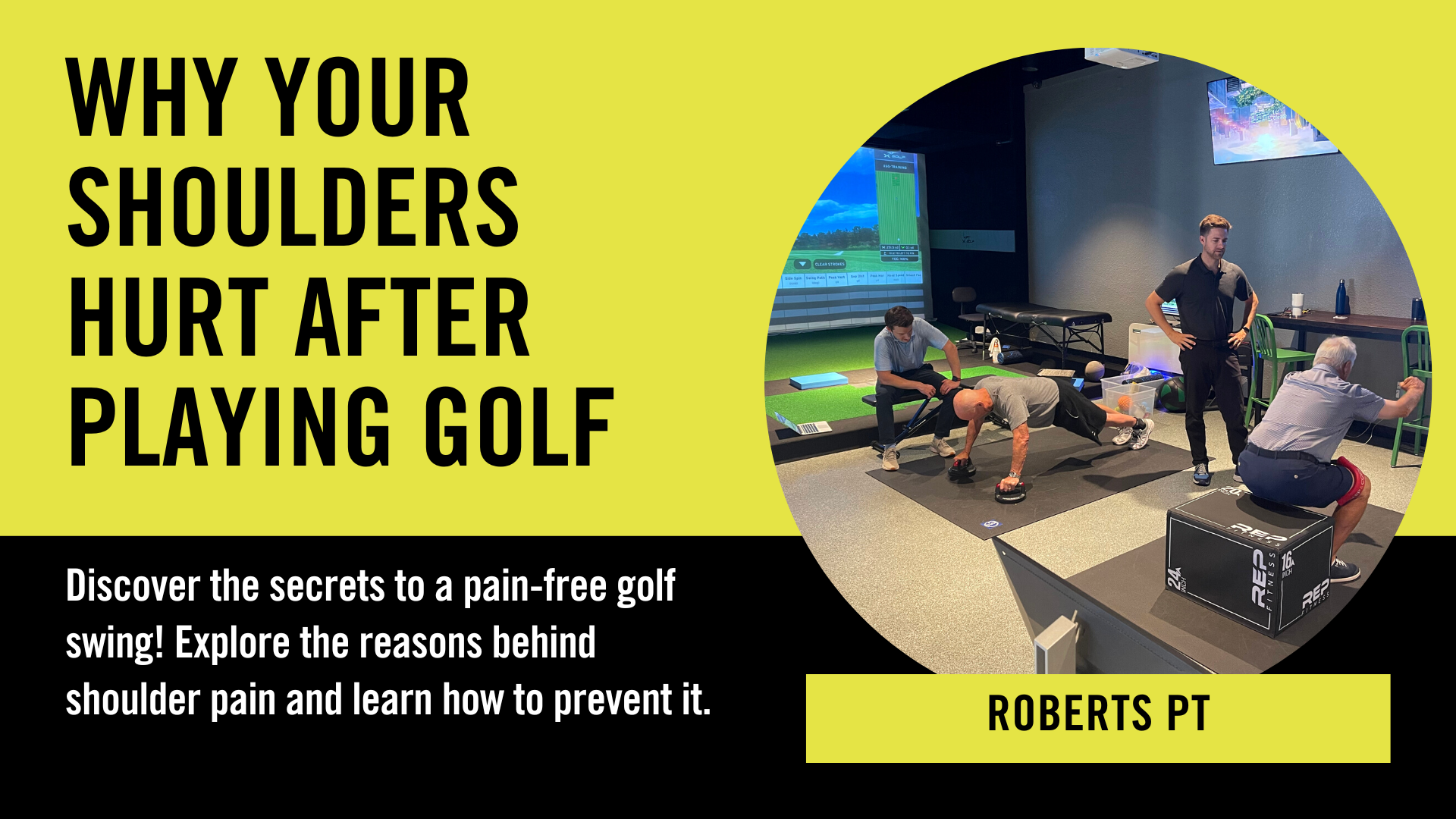Golf shoulder injuries are a common occurrence in golfers. There can be various reasons behind your shoulder pain, which we will dive into below and help you golf pain-free.
Upper Body Dominance
One potential reason for your shoulder pain with golf is having an upper body-dominant swing. Whether it’s due to technical reasons or lack of mobility in other areas (we will go over this later), your arms might be doing too much work from a muscular standpoint – resulting in shoulder overuse. Your lower body must work with your upper body to create an efficient and smooth golf swing to reduce any pain associated with swinging.
Lack of Mobility
Thoracic Spine
As mentioned above, shoulder pain can also result from a lack of mobility from other areas in your body. One key area to examine is your thoracic spine or upper back. Due to their close proximity, a lack of mobility within thoracic spine rotation can create shoulder compensation to still complete your golf swing. Repeatedly swinging with this deficiency will slowly create more and more shoulder strain. Simply addressing and improving thoracic spine mobility can take pressure off your shoulder(s) and help you swing the way your body was designed to.
Shoulder
Your shoulder pain might also be due to a lack of shoulder mobility. During the backswing and the start of the downswing, your trail side shoulder is doing what is called external rotation (rotating outward). If your shoulder is unable to rotate to the degree it needs to, whether it be from previous injury or other joint restrictions, this could potentially explain your pain.
Take this at-home assessment HERE to see if you’re rotating correctly, and get FREE golf shoulder exercises at the end upon submission.
Conclusion
Many golfers deal with shoulder pain regularly; however, this can be prevented. It is best to seek out an assessment from a healthcare professional, such as a golf physical therapist, to assess your mobility and determine the cause of your golf shoulder injury. Book your FREE strategy call with RobertsPT Golf Physical Therapy and Performance HERE, and start your path to pain-free golf today.
Dr. Cole Bunce is a contributing writer for Central Links Golf. Dr. Bunce works at RobertsPT, a golf Physical Therapy and Performance Center in Kansas City.
